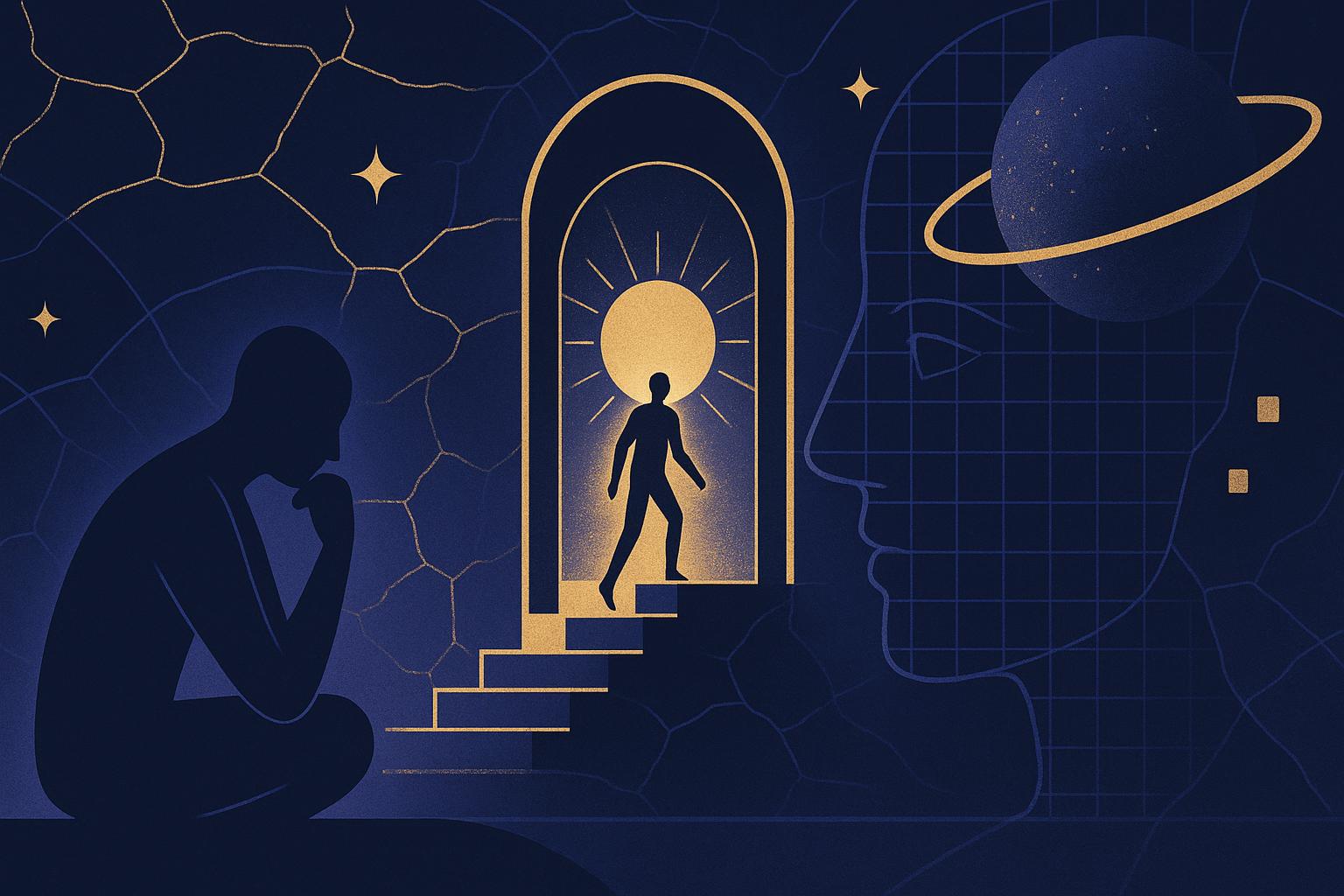Exploring the Purpose of Life Within an Illusory Reality
In a world where every day feels tangible and every pain and joy feels achingly real, there remains an intriguing philosophical question: What if our reality is merely an illusion? If everything we experience is part of a complex simulation, what then is the purpose of our lives? This puzzle has fascinated thinkers for centuries, and recent advances in technology and philosophy prompt us to explore this conundrum with renewed vigor.
As we navigate through these existential waters, we draw upon insights from noted philosopher Johannes, who offers a unique perspective on this topic. His explorations propose that whether reality is an actual or virtual construct, the quest for meaning remains paramount.
The Simulation Hypothesis: A Philosophical Inquiry
To tackle the question of life's purpose if reality is an illusion, we must first understand the simulation hypothesis. This theory posits that our perceived reality might be a sophisticated, artificial construct. While it may sound far-fetched, the hypothesis suggests that advanced beings might simulate universes as a form of experimentation, entertainment, or education.
Johannes challenges conventional thinking by asking, "Why should we spend time contemplating whether our reality is a simulation?" He contends that this contemplation could imbue our existence with purpose, even if such reality were illusory.
Belief in a Simulation: Meaning Within the Illusion
Johannes delves into the mindset of those who believe they live in a simulation, arguing that this belief leads to positive life outcomes. "Purpose is absolutely vital for conscious beings," he asserts. Whether reality is authentic or a fabrication, having a mission fosters personal fulfillment and societal harmony. Believers in the simulation feel motivated by a purpose that transcends daily existence, pursuing goals that resonate deep within their core.
The Necessity of Purpose: A Driving Force
Purpose, according to Johannes, transcends mere survival instincts, shaping everything from the mundane to the monumental. It compels people to rise in the morning, brush their teeth, and engage meaningfully with their surroundings. A sense of responsibility often accompanies this purpose, echoing Johannes's view that "life is a choice." We can choose to embrace our existence, whether as an illusion or reality, and seek contentment and growth.
An Illusion of Choice and Consciousness
In the face of the idea that existence itself could be a fabricated experience, some might view purpose as moot. However, Johannes offers solace by suggesting that "if we choose to believe our life has a purpose," conscious engagement could lead to personal and communal evolution. The staggering possibility of a simulated universe doesn’t negate our experiences—it enhances them by widening the scope of human consciousness and relationships.
Unity in Diversity: A Bridge Between Illusion and Reality
Regardless of whether we dwell in a simulation, achieving understanding through purpose is attainable by connecting with others. As Johannes notes, "we can find meaning in every moment" by being present with ourselves and others. Relationships with people, animals, and nature foster interconnectedness, forming a fabric of collective consciousness that enriches our existence.
Living a Life of Purpose: Philosophical Reflection
The pursuit of purpose floods our lives with meaning, but should reality be unveiled as mere illusion, would anything change? In response, Johannes poses a crucial philosophical question: "But what if, against the odds, we actually happen to live in the true base reality?" For him, the very act of believing offers empowerment and hope, tapping into greater, unknowable truths.
Engaging with the Illusion: Embracing Challenges and Growth
Even if our reality is an illusion, our consciousness is authentic; so are the emotions and actions stemming from it. Through these experiences, we arise to challenges, enrich personal growth, and generate real consequences within this framework. The autonomy to create personal significance within or outside perceived constraints transforms how we engage with the world.
The Role of Empathy and Connection
In a profound insight, Johannes posits that our interconnected experiences mirror real-world responsibilities. "Our connection with others," he says, "is the reality that matters." The searing pain of loss or the joys of companionship are authentic moment-to-moment truths guiding us to form a shared community.
Conclusion: Life's Purpose Beyond the Simulation
As we ponder life's purpose in a potentially illusory existence, Johannes's insights underline that purpose emanates not from the limitations of our environment but from our chosen experiences. Whether we are players in a cosmic simulation or beings in absolute reality, our quest for meaning is both a universal and personal journey.
In this pursuit, nurturing a consciousness mindful of the present imbues life with value and motivation, propelling us to achieve peace, freedom, and shared dreams. Believing in the sanctity of our own lived experience and cherishing the beauty of life might just be the key, and "we live life to the fullest by being present."
Ultimately, in the grand scheme of a simulated or genuine reality, purpose and connection unify humanity, revealing that regardless of our origins, living meaningfully is what resonates eternally.
